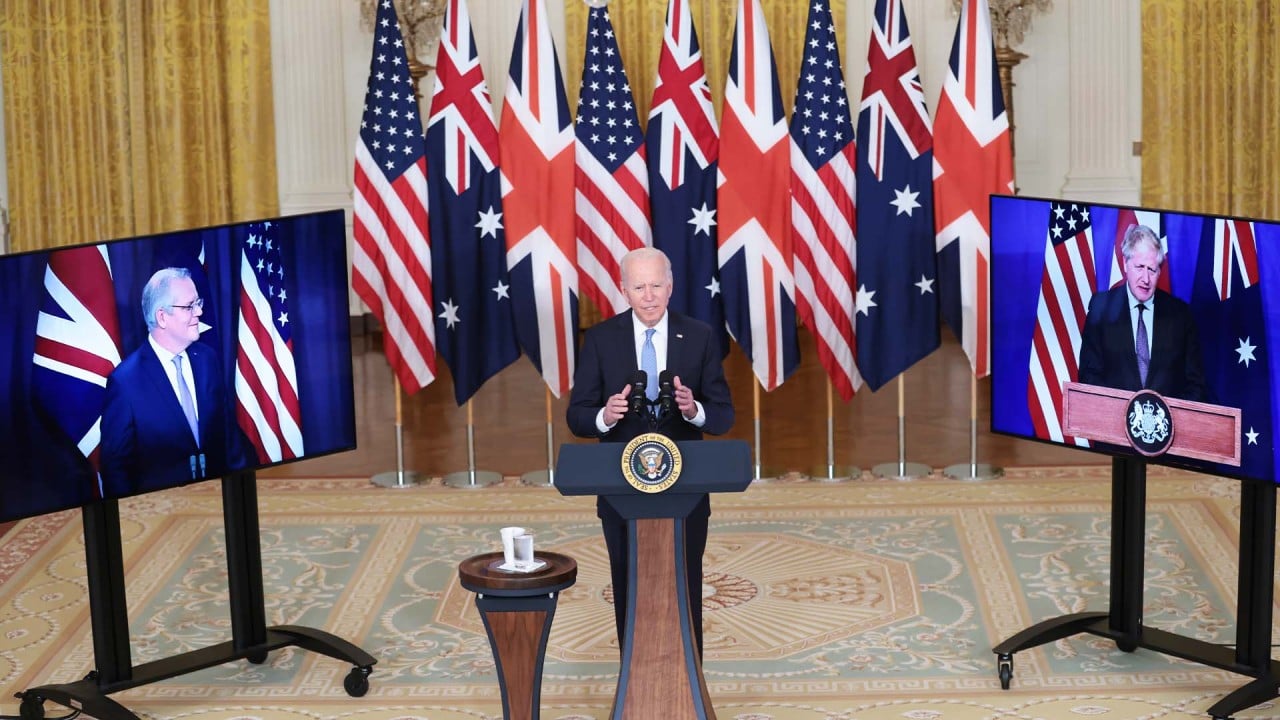
Australia regrets France’s ambassador recall decision over nuclear submarine deal
- Australia said it valued the relationship with France and would keep engaging with Paris on other issues
- Australian PM Scott Morrison rejected French criticism that it had not been warned about the AUKUS security deal made with Washington and London
“We note with regret France’s decision to recall its ambassador to Australia,” a spokesperson for the foreign ministry said in a statement.
“Australia understands France’s deep disappointment with our decision, which was taken in accordance with our clear and communicated national security interests,” the statement said.
“Australia values its relationship with France … We look forward to engaging with France again on our many issues of shared interest, based on shared values.”
Why nuclear subs are a smart move for Australia – and could deter China
“The cancellation [of the project] … and the announcement of a new partnership with the United States meant to launch studies on a possible future cooperation on nuclear-powered submarines, constitute unacceptable behaviour between allies and partners,” he said in a statement.

03:51
US, UK, Australia announce ‘historic’ military partnership in Pacific
The row marks the lowest point in relations between Australia and France since 1995, when Canberra protested Paris’s decision to resume nuclear testing in the South Pacific and recalled its ambassador for consultations.
French Ambassador to Australia Jean-Pierre Thebault said Canberra never mentioned that the project could be scrapped.
Thebault told Australian Broadcasting Corporation in an interview recorded on Friday that he found out about the US submarine deal: “Like everybody, thanks to the Australian press.”
“We never were informed about any substantial changes,” Thebault said. “There were many opportunities and many channels. Never was such a change mentioned.”
Australian Prime Minister Scott Morrison on Friday rejected French criticism that it had not been warned about the new deal, and said he had raised the possibility in talks with Macron that Australia might scrap the Naval Group deal.
Morrison insisted he had told Macron in June that Australia had revised its thinking.
Nuclear submarines for Australia a boost to region’s hard power, analysts say
“I made it very clear, we had a lengthy dinner there in Paris, about our very significant concerns about the capabilities of conventional submarines to deal with the new strategic environment we’re faced with,” he told 5aa Radio.
“I made it very clear that this was a matter that Australia would need to make a decision on in our national interest.”
The strain in multilateral ties come as the US and its allies seek additional support in Asia and the Pacific given concern about the rising influence of a more assertive China.
France is about to take over the presidency of the European Union, which on Thursday released its strategy for the Indo-Pacific, pledging to seek a trade deal with Taiwan and to deploy more ships to keep sea routes open.
Additional reporting by Associated Press

